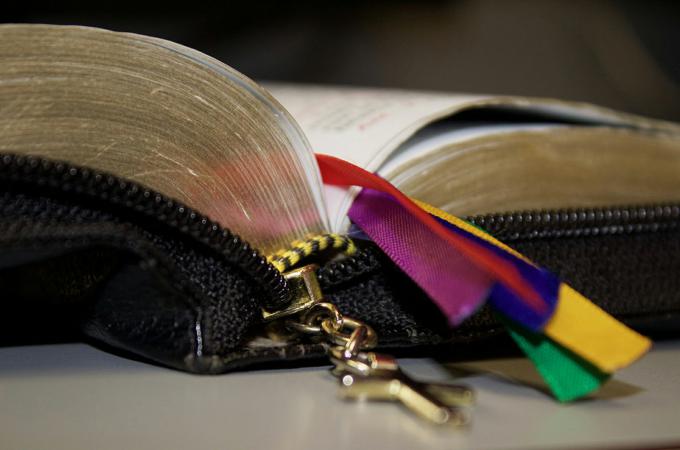Liturgy and life
''God himself will set me free, from the hunter's snare." The words of this responsory from the Liturgy of the Hours for Lent have been echoing in my head for days. Andrew and I have been attempting to pray Morning and Evening Prayer together for a while now, and we've finally gotten to a point where it's happening more often than not.
Of course, it's always good to spend time with the Scriptures. That's especially true when you're encountering the Bible in its natural habitat: the liturgy. The Divine Office, of course, isn't personal prayer. It's the prayer of the Universal Church. And there's something powerfully beautiful about joining the throng of Catholics offering the same prayers on the same days not only around the world but across the ages. The rhythm of the psalms really is the heartbeat of the Church and may be the closest thing we have to a common rhythm for the Christian life.
But in a certain sense, liturgy -- whether prayed alone or with others -- can be deeply personal. Many times, I've felt that whoever made the decision to assign a particular reading or prayer to a certain day must have known that I'd be there listening. I've found that the Office speaks that way, too, often giving me exactly what I need to hear or pray precisely when I need to hear or pray it.
This Lent, I have thought a good deal about that little refrain from Morning Prayer: "God himself will set me free, from the hunter's snare." God does not promise to guard me from the things that can entrap me; he does not guarantee that I will never be caught. But he does reassure me that he will not leave me at the mercy of those who hunt me, not even when I walk willingly into their traps. Even more, God will not send an agent or surrogate to help me. "God himself will set me free": he will come to rescue me himself. God wants to set me free from every hunter's snare. He knows that I cannot liberate myself. It's just one line -- one life-giving, life-changing line.
Perhaps this Lent offers us an opportunity to consider the hunters who chase us and the snares we most often fall for. When our children were young, it wasn't unusual for one of them to complain about being chased around the schoolyard by a classmate during recess. I used to tell them that no one would be able to chase them if they didn't run. That's just as true for adults as it is for kids. All we ever really need to do when things get tough is stop running and cry out to God for help. The liturgy shows us how to do that.
When I was an evangelical Protestant, more years ago than I care to count, I was hungry for the Word of God. I loved unpacking the Scriptures in a Bible study and learning a Greek word or two in the 45-minute Sunday service sermon. But having a command of chapter and verse or being able to name all the pieces of the armor of God cannot compare with praying to God in the language of his own inspired Word. Learning is great, don't get me wrong. But living is better. God created our minds for knowledge and understanding, to serve and glorify him. But he longs to dwell in our hearts.
Lots of people complain that repetition makes liturgy rote and boring. They wonder if everything always has to be the same and why the Church's prayer seems so closed to innovation. But often, these same people frequent the same restaurant, take the same seat on the bus, and couldn't imagine a Thanksgiving without sweet potatoes.
Liturgy is life. Its rhythms and rhymes are familiar enough to offer us the stability and security we need no matter what ensnares or hunts us down. Liturgy is the ever-flowing current of human conversation with God. It's our words and God's, our silence and his silence, too. It is the people of God, inhaling, exhaling, breathing deeply.
- Jaymie Stuart Wolfe is a Catholic convert, wife, and mother of eight. Inspired by the spirituality of St. Francis de Sales, she is an author, speaker, and musician, and serves as a senior editor at Ave Maria Press. Find Jaymie on Facebook or follow her on Twitter @YouFeedThem.



















